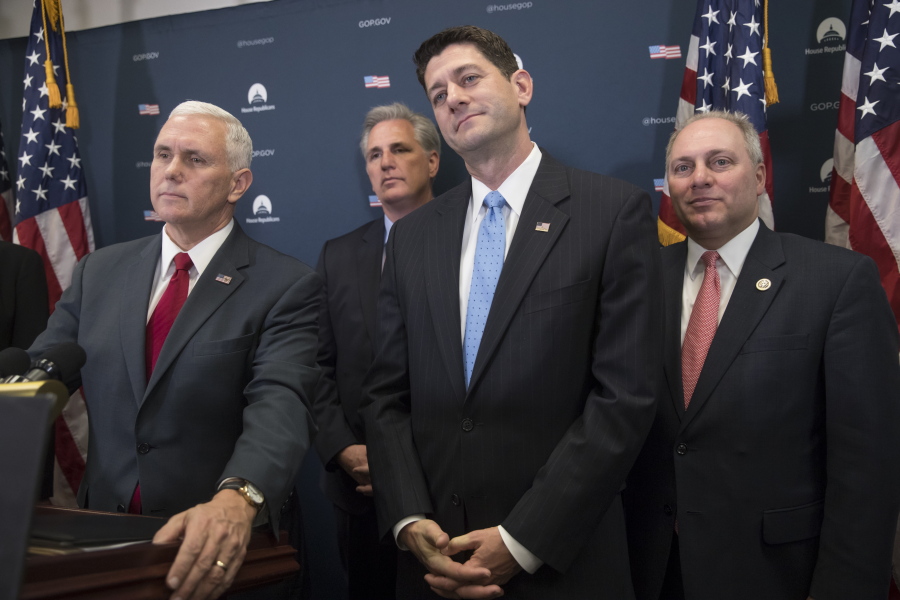• WHAT’S THE FIRST STEP?
Pass a non-binding budget blueprint for the current 2017 fiscal year, and it’s already started in the Senate. The budget plan is mainly illustrative, but its passage permits binding follow-up legislation to actually repeal the 2010 health care law. Both the budget and the follow-up “reconciliation” bill can pass the Senate by a simple majority vote after limited debate. Both measures are subject to unlimited amendments, which are invariably stacked until the end and result in an hours-long series of votes that typically stretch until after midnight.
On Capitol Hill, the process is dubbed “vote-a-rama.”
Usually budget resolutions make projections about spending and taxes. The current measure is a “shell” bill that projects almost $10 trillion in new debt over a decade, but enabling action on repeal. Sen. Rand Paul, R-Ky., a strong fiscal conservative, has railed against fellow Republicans about adding to the debt.
• AND THE ACTUAL REPEAL BILL?
The ensuing repeal legislation — a budget “reconciliation” bill in Washington-speak — would be written by a handful of House and Senate committees with jurisdiction over health issues. It’ll first go to the House, where debate should be fairly routine. When the Senate takes up its version, however, Democrats will have many opportunities to offer amendments. The House and Senate would have to work out their differences before passing a final version and sending it to the White House for Trump’s signature.
• THAT SOUNDS SIMPLE ENOUGH, BUT …
Well, there’s a major complication. Reconciliation bills operate under special rules, the most important of which is that its provisions need to have an impact on the budget or else they can be scuttled for being extraneous. This is a huge issue in the case of “Obamacare,” since some pieces of the law, such as mandating that insurance companies cover people with pre-existing medical conditions, can’t be modified in a fast-track reconciliation measure.



